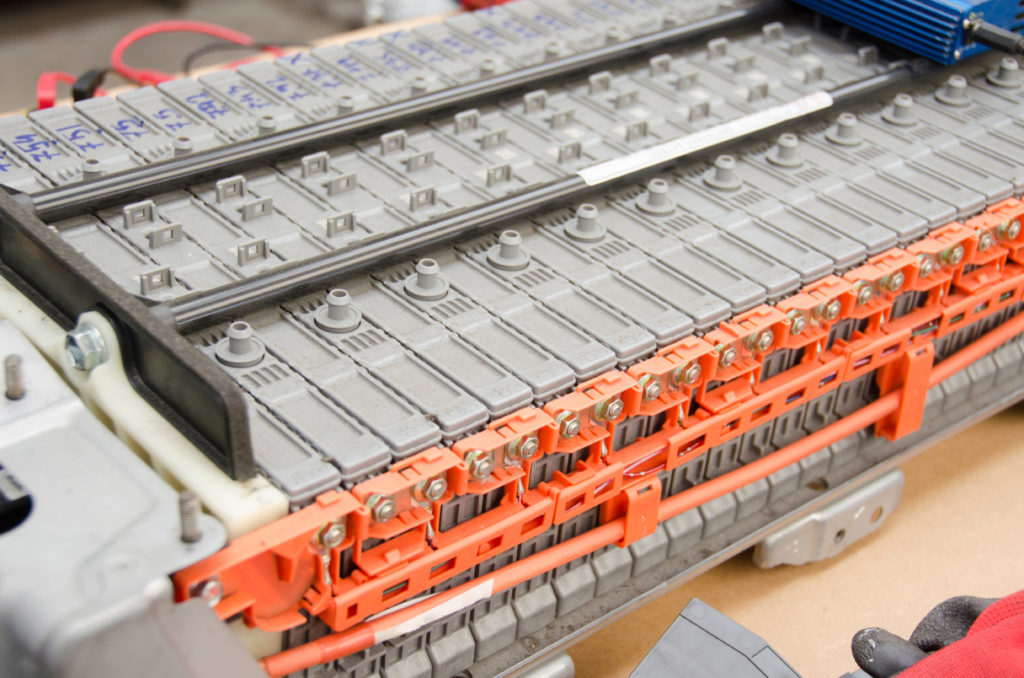While everyone is busy talking about battery electric vehicles (EVs), hybrid vehicles are steadily gaining traction without as much fanfare. In 2021, sales of hybrid models reached an all-time high, with approximately 801,550 new vehicles sold.
For those who aren’t quite ready to take the plunge and purchase a pure EV, hybrid vehicles offer an excellent compromise, blending electric power with a traditional gas engine. But even though hybrids have been on the market for decades, there’s still a lot of confusion surrounding these advanced vehicles.
So, to help you get up to speed, we’re going to answer 10 of the most frequently asked questions regarding hybrids.

1. What is a Hybrid Car?
Simply put, a hybrid is a vehicle that uses two forms of propulsion. The term is commonly used to describe a model that combines an internal combustion engine (ICE) with one or more electric motors. All of the production hybrids available in the United States currently utilize a gasoline ICE, but that’s not to say a diesel hybrid isn’t possible.
2. What Was the First Hybrid Car?
Surprisingly, hybrid vehicles date all the way back to 1901, when Ferdinand Porsche—the same visionary who founded the iconic sports car brand—introduced the first hybrid, called the Lohner Porsche Mixte.
It wasn’t until 1997, however, that Toyota introduced the Prius in Japan as the world’s first mass-produced hybrid. Then, in 1999, the Honda Insight became the first mass-produced hybrid available in the United States.
3. How Do Hybrid Cars Work?
There are many different hybrid powertrain designs in use today, all of which have a few things in common. The primary components found in any hybrid include a gasoline ICE, one or more electric motors, and a high-voltage battery pack. The battery supplies electricity to the motor, which (in most applications) aids the ICE in powering the vehicle in one way or another.
Under most conditions, the high-voltage battery is recharged by the ICE in conjunction with an electric motor acting as a generator. The battery can be charged through regenerative braking when the vehicle is slowing or stopping, as well. There are also less-common plug-in hybrid vehicles (PHVs) that can be recharged when parked by connecting to the electrical grid.
All hybrids also have a collection of components (often referred to as power electronics) that govern the gasoline-electric powertrain. The inverter—a device that acts as a controller for the motor(s) and converts DC electricity into AC electricity and vice versa—is one such component.
Another important part of the system is the DC-DC converter, which acts as a step-down transformer to reduce the power from the high-voltage battery to a level that can be used by the car’s 12-volt electronics.
The video below discusses hybrid vehicle operation in detail:
4. How are Hybrids Different from Electric Vehicles (EVs)?
The primary difference between hybrid and electric vehicles is that EVs do not have an ICE. Instead, an EV is propelled entirely by one or more electric motors paired with a high-voltage battery. The battery can only be recharged by connecting the car to the electrical grid or through regenerative braking.
5. What are the Different Types of Hybrids?
There are a variety of different hybrid designs on the road, all of which provide various levels of performance and fuel economy. The four primary types of hybrid systems include:
- Micro: The lowest level of hybridization, which is referred to as a micro-hybrid system, uses a small motor primarily for the purpose of restarting the vehicle from an idle stop. An example is the belt alternator starter (BAS) system found on select General Motors vehicles.
- Mild: The next step up is a mild hybrid system, in which a full-strength electric motor assists the gasoline engine but never powers the vehicle’s drive wheels directly. An example is the Integrated Motor Assist (IMA) system found in many Honda hybrids. Some cars, such as certain Hyundai models, also add a small, belt-driven motor to the equation, turning the setup into what some consider a medium hybrid system.
- Full: A full hybrid system uses one or more electric motors. The motor(s) can assist the gasoline engine or power the vehicle’s drive wheels directly at low speeds. An example is Toyota’s Synergy Drive System, which is used in most of the brand’s hybrid models.
- Plug-in: With a plug-in hybrid electric vehicle (PHEV), the battery pack can be recharged by the gas engine, through regenerative braking, or by plugging the car into an electrical outlet. All PHEVs can travel a short distance solely on electrical power under certain conditions. One example of a PHEV is the Toyota Prius Prime.
Among the different hybrid designs, micro hybrids are the least efficient and tend to provide a minimal increase in fuel economy over a traditional vehicle. From there, efficiency improves with each level of hybridization, with PHEVs getting the best fuel economy, followed by full hybrids then mild hybrids.

6. What Types of Batteries are Used in Hybrid Vehicles?
Hybrid vehicles have two batteries: a 12-volt unit and a high-voltage unit. The 12-volt battery provides power to everything from the radio to the engine computer, just as it would in a traditional vehicle. The 12-volt battery can use either a lead-acid or absorbent glass mat (AGM) construction.
Meanwhile, a hybrid’s high-voltage battery provides electrical energy to the motor(s) within the powertrain. The high-voltage battery typically uses either a nickel-metal hydride or lithium-ion construction.
7. How Long Do Hybrid Batteries Last?
And that brings us to our next question: How long do hybrid high-voltage batteries last? Well, automakers are legally required to warranty hybrid batteries in the United States for 8 years/100,000 miles (up to 10 years/150,000 miles in select states).
In reality, hybrid batteries can last much longer, though. It’s not uncommon to find a 20-year-old hybrid vehicle that still has the original battery. The battery will tend to last longer if its state of charge has been maintained and the vehicle hasn’t been continuously subjected to extreme temperatures.

8. Do Hybrids Cost More than Conventional Vehicles?
The answer is—it depends. Usually, hybrid technology tacks on a premium to the price of a new vehicle. But in the used car market, hybrid vehicles may cost less (or about the same) as their conventional counterparts, primarily because buyers are intimidated by the thought of a used hybrid with an aging high-voltage battery.
9. Are Hybrids as Reliable as Conventional Vehicles?
Once again, it depends. Like any type of vehicle, some hybrids are more reliable than others. The Toyota Prius, for one, is known for being extremely reliable, but other models might not be as dependable.
Oddly enough, Consumer Reports found that hybrid vehicles as a group were morereliable than conventional vehicles, despite the added complexity of the hybrid powertrain. Furthermore, the study found hybrids cost less to own and maintain than traditional models.

10. Is a Hybrid Worth it?
Whether a hybrid is worth it for you will depend on your lifestyle and priorities. A new hybrid typically costs more upfront than a comparable traditional model. Recouping that additional cost through the fuel savings you get with a hybrid can take a long time, especially if you don’t drive much. With a hybrid, you also have the potential cost of having to replace the high-voltage battery at some point.
But if you drive enough and keep your hybrid long enough, the fuel savings eventually add up and tend to make the cost of ownership lower than a traditional model overall.
What’s more, the future of transportation is electric—and owning a hybrid vehicle gives you a taste of battery power while still providing the peace of mind associated with a gasoline engine. And that in itself might be enough to justify purchasing a hybrid for your next vehicle.
Where to Get Replacement Parts for Your Hybrid Vehicle
Like in any other vehicle, parts like your hybrid’s batteries can develop issues over time. Luckily, it’s easy to find top-notch replacement parts at CarParts.com.
Navigating our website is easy, and you can order and check out securely in a matter of minutes. To start, enter your ride’s details into ourr easy-to-use vehicle selection tool to view compatible parts. Then, use the filters to find the products with your preferred brand, price, and features.
If you’re worried about quality, Rest assured that we get our replacement parts from reliable manufacturers in the industry. In short, all our parts have passed stringent quality control tests during manufacturing. They’re also screened by our team of industry experts to ensure they perform like your factory unit.
Here at CarParts.com, we want to make sure your shopping experience is quick and convenient. Should you need any assistance, don’t hesitate to contact us via our toll-free hotlines. Our friendly customer service assistants are ready to assist you 24/7.
Check out our selection now and order what you need today!
Any information provided on this Website is for informational purposes only and is not intended to replace consultation with a professional mechanic. The accuracy and timeliness of the information may change from the time of publication.

















